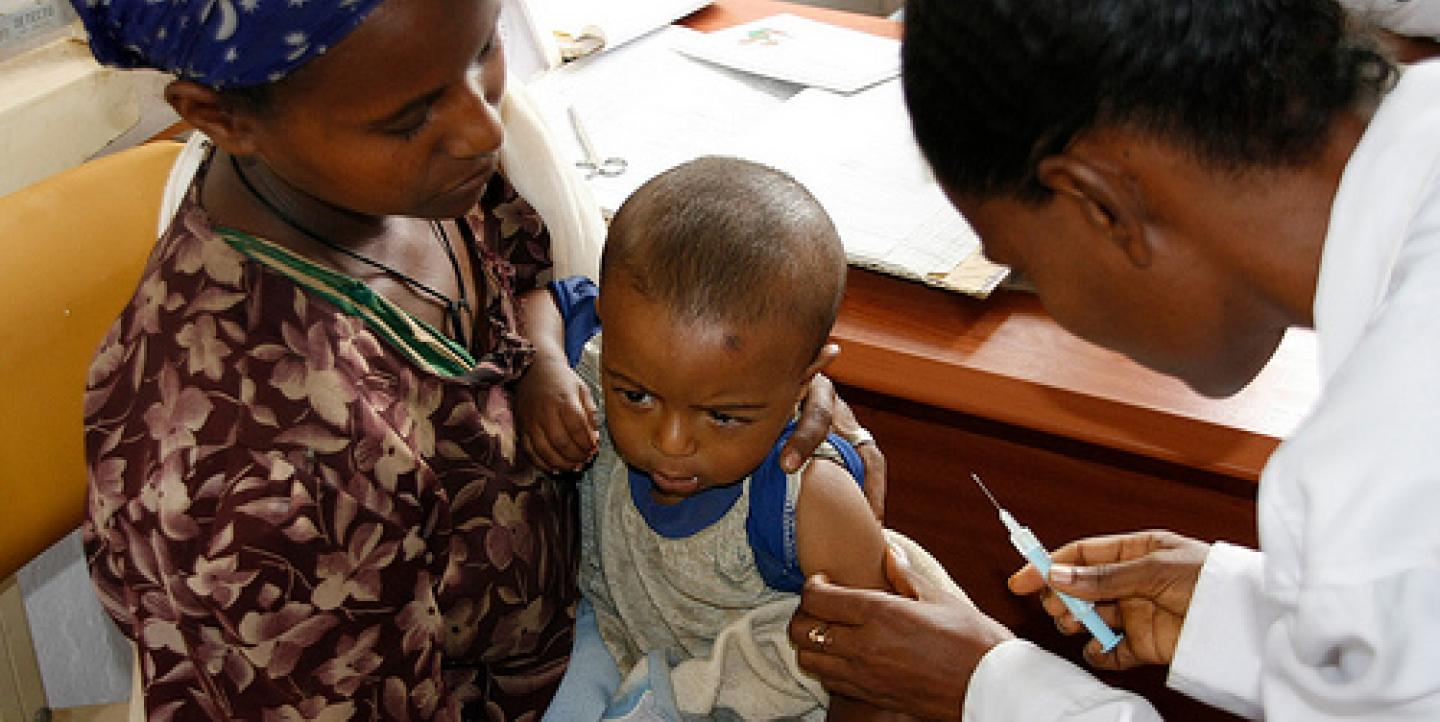Reporters covering health face several challenges: developing stories that demand attention, relay information on science and policy in a way that grabs and holds their audiences, and doing it in a media landscape of competing priorities.
Those covering vaccines have an even bigger challenge: how do you get audiences to care about a subject that is distant, dry, and often suspect in the countries where informing the public on vaccines matters most?
Winners of the International Center for Journalists' competition on coverage of vaccines and immunizations found ways to meet these reporting challenges, the contest judges said. The judges shared heir takeaways from reviewing scores of contest entries, and had this advice for reporters covering health in general, and immunization in particular:
Hone in on the “gem of the story.”
While it’s important to report deeply on health subjects, you don’t have to share every fact you learn.
“Going long did not necessarily result in better stories,” wrote contest judge and health reporter Brenda Wilson, a former ICFJ Knight International Journalism Fellow in South Africa.
“What generally trips up reporters faced with the challenge of reporting on such a broad subject is having to cover a wide range of information,” Wilson added. “Finding the gem of the story, the idea that sets an issue in relief, often only comes after mining stores of information and data, reporting widely and honing in on what is striking and essential.”
Get the voices of real people.
It’s essential to talk to those most affected by and involved in vaccine efforts: children, their families, and civil society workers struggling to get vaccines to remote areas, said contest judge Mariam Sami, who works with journalists in the Gulf region.
Copy that relies on “quoting some health official boasting of what the government is doing,” Sami added, “will neither educate the public nor bring the issue of vaccines closer to them.”
Instead, follow the example of a reporter and contest entrant who travelled far from the capital city to explore public attitudes toward vaccines, and on measles and vaccination efforts. “He has challenged the official national immunization coverage data using interviews he has collected,” wrote Knight International Journalism Fellow Elsabet Tadesse, who works with reporters covering health and human rights in Ethiopia.
Use local color.
Using sights, sounds, and what Wilson refers to as “the telling anecdote,” brought stories to life, the judges said.
“I was fascinated by how one radio reporter from Ghana used the sounds of cocks crowing, goats bleating, and toads croaking in the background of his report to transport me to the rural setting he described while he talked vaccines; how he used the roaring sound of a revving motorbike to signal the arrival of vaccinators to the community,” wrote judge and ICFJ Knight International Journalism Fellow Declan Okpalaeke.
“I was glued to the screen of my computer and straining to catch every word as another reporter from Nigeria completely captured me with riveting pictures of a sweating, struggling unemployed university graduate, who lost the use of his limbs to polio,” Okpalaeke wrote. The entry told “of his struggles to get a job as he labored through the streets of Lagos.”
Developing vaccines coverage demands ongoing investment, Wilson wrote.
“You need a lot of time to explore the various issues surrounding vaccines to develop a narrative that connects telling anecdotal details to the science and significant social and cultural factors,” Wilson wrote. “And yet many reporters were able to do this, backed by solid interviews with experts and getting out into the field to report what actually happens on the ground.”
Journalists can enter ICFJ's story contest for best coverage of infectious diseases and win a US$10,000 reporting trip.
Health journalist Antigone Barton writes the Science Speaks blog for the Center for Global Health Policy. She served as an ICFJ Knight Health Journalism Fellow in Zambia from 2009 to 2010 and was a 2011 Global Health Reporting Fellow at the Nieman Foundation for Journalism at Harvard University.
Image CC-licensed on Flickr via DFID - UK Department for International Development.

